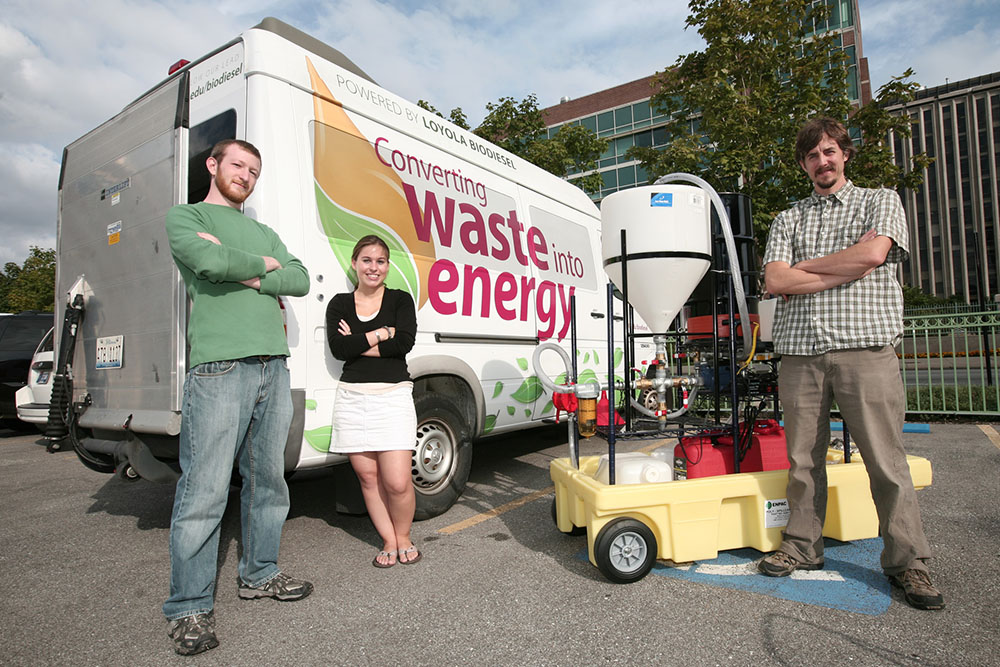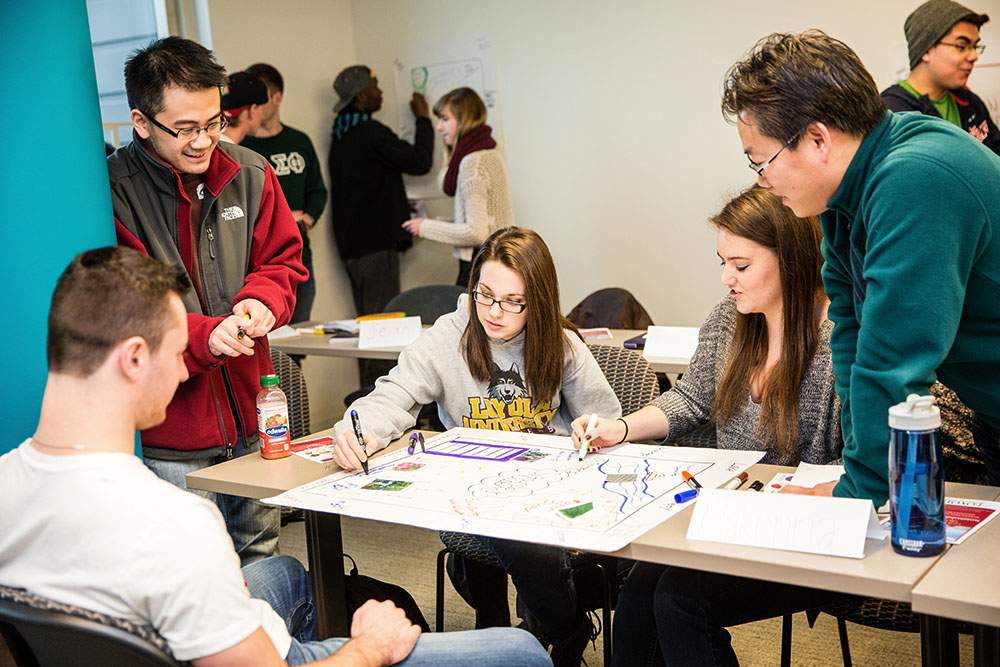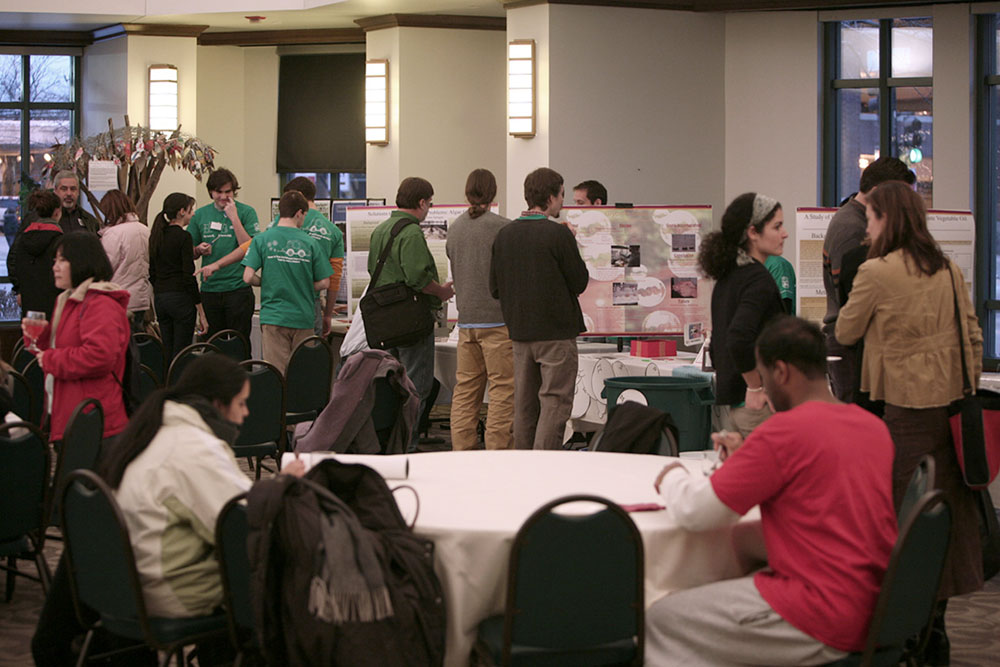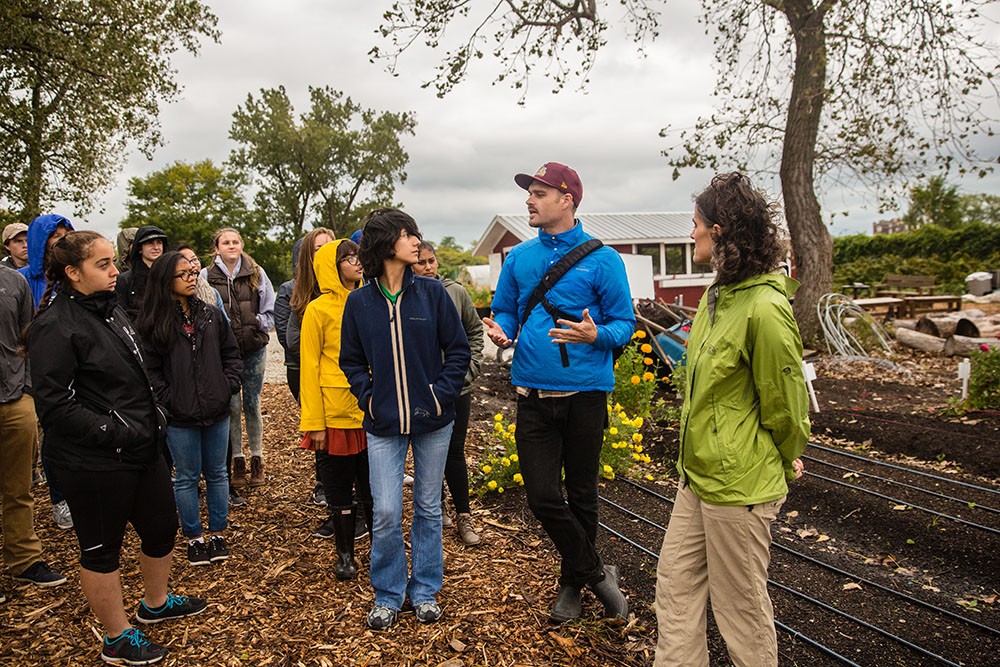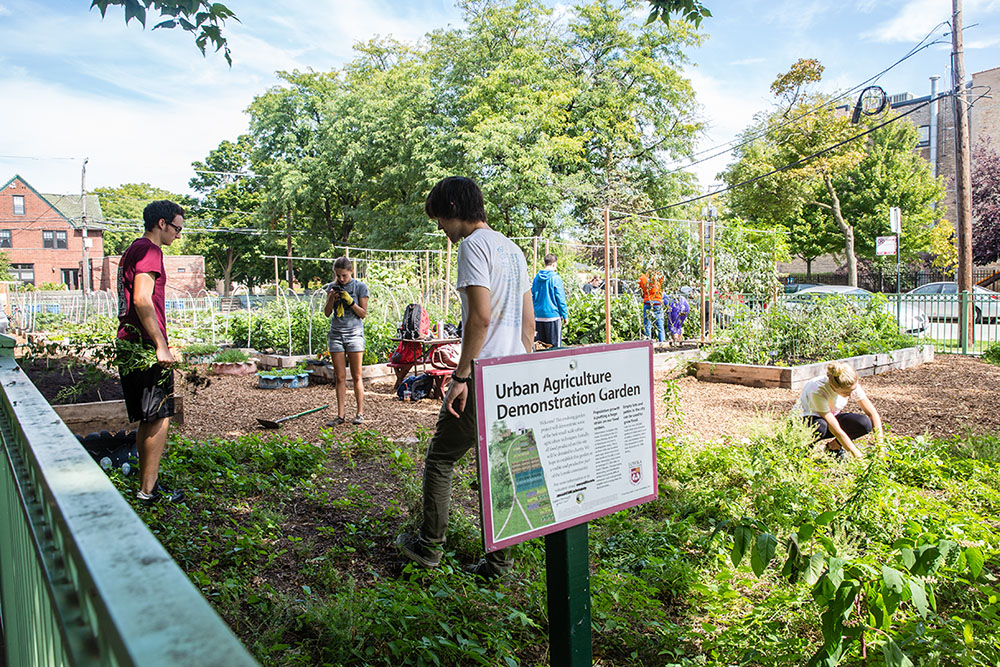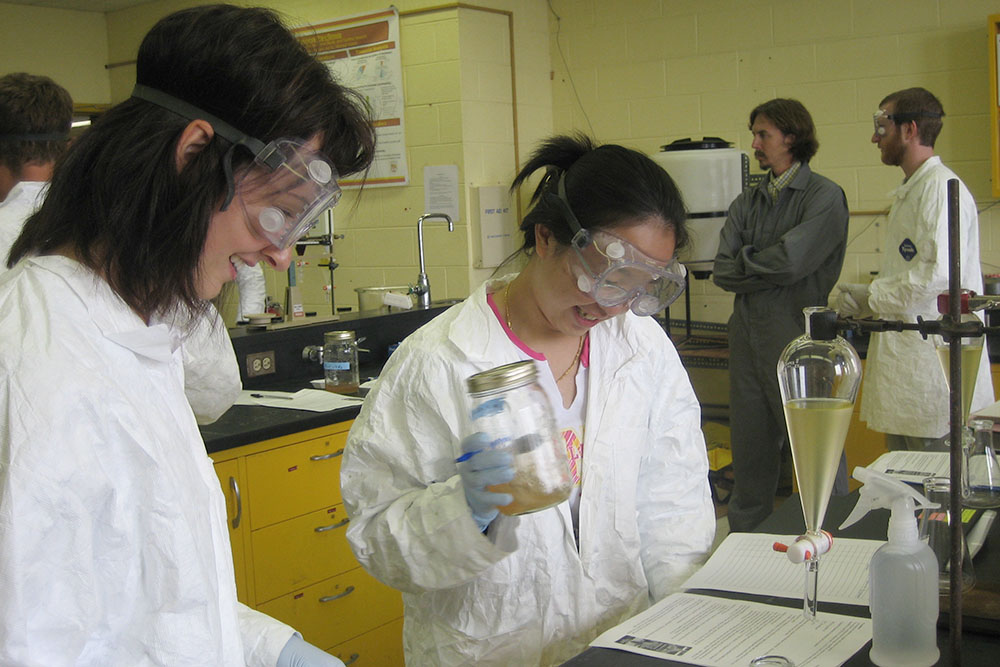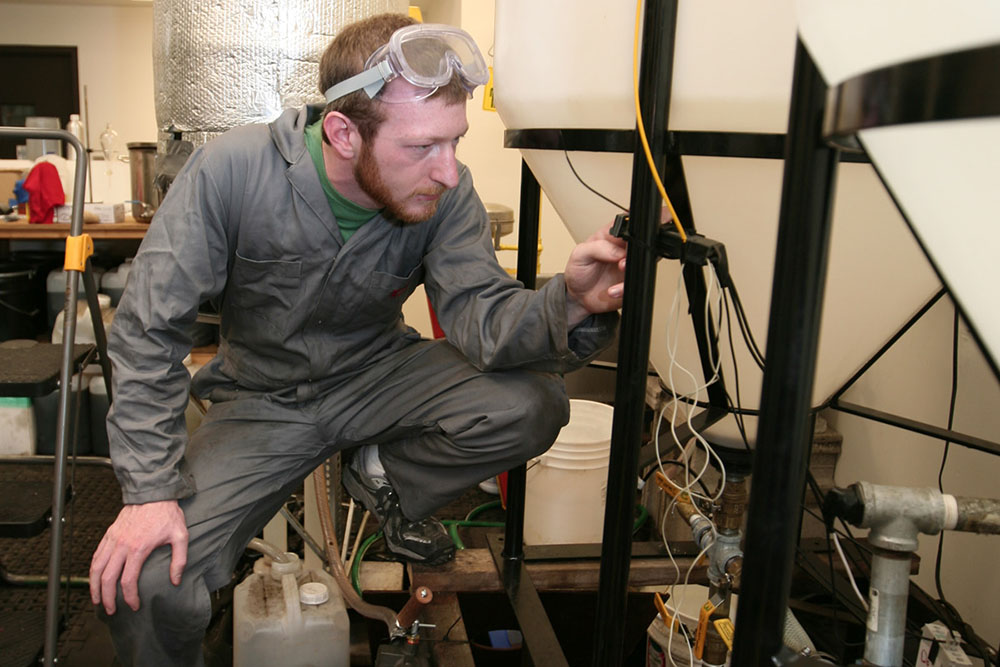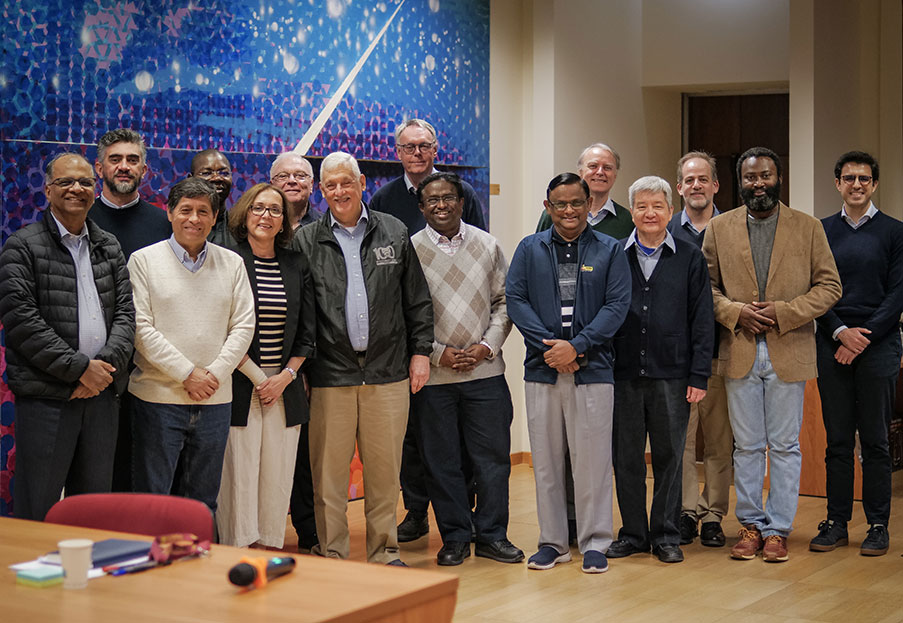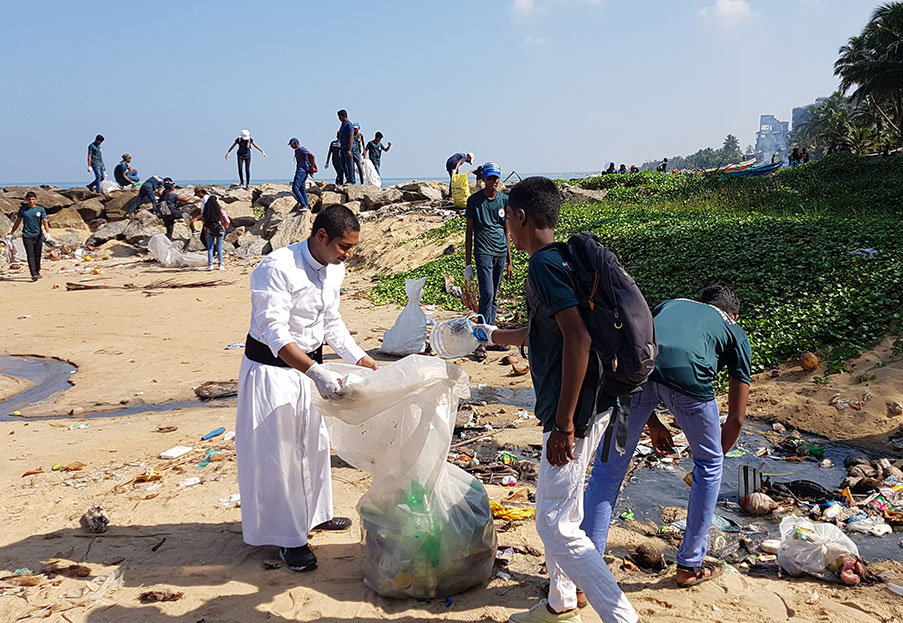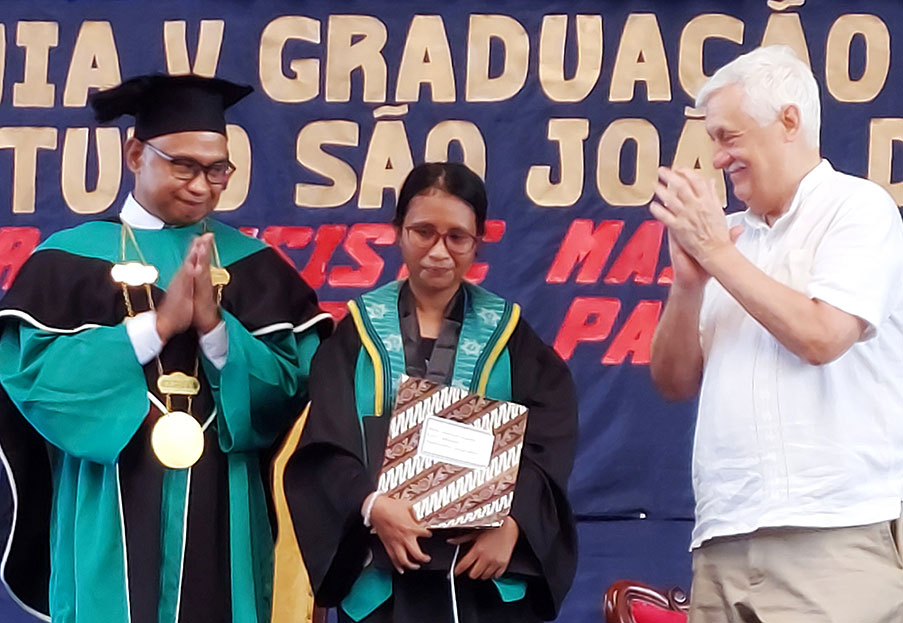STEP: Getting involved in finding solutions to environmental problems
Solutions to Environmental Problems (STEP) is an innovative academic program that ignites student energy around environmental challenges that theyidentify positive remedies that theycreate. Students in STEP not only learn about today’s pressing environmental problems but also innovate to solve them. For example, since its inception at Loyola University Chicago’s (LUC) Institute for Environmental Sustainability (IES), STEP has taken student concern over carbon emissions and turned it into a student-run biodiesel production operation using waste vegetable oil from campus and locations throughout Chicago. Biodiesel fuel now powers all LUC campus buses.
In the Ignatian spirit, STEP is an academic program designed to move education to action. And like so many projects inspired by this spirit, STEP began with a work of the imagination. LUC faculty conducted a thought experiment that imagined the LUC campus as a box wherein all the work taking place on campus occurs. In order to do this work, resources are needed, such as energy, food, water, office supplies, furniture, computers, and a myriad of other items. These are the box inputs. The box output is waste, the remains of the resource inputs after use. LUC has three main waste streams: emissions released from smokestacks, solid waste that goes into landfills, and liquid effluents flushed down the drains. If inputs and outputs are reduced and resources within the box are used and reused more efficiently, LUC can be a more environmentally sustainable citizen of the natural world. This was the simple, but vital, thought experiment that activated the STEP vision.
The next step was to find an innovative way to put student education and
action at the core of the vision. This came with the idea that students
would identify an environmental challenge at LUC and students would
build the solution. As anyone who has taught environmental science knows, the
data on environmental degradation is discouraging and solutions often seem
unattainable. Students can lose hope. The STEP program gives students agency.
It helps them identify workable local environmental problems and successfully
construct remedies. With the energy of youth, even small successes rear hope.
To paraphrase Gandhi, students begin believing that they canbe the change
that they wish to see in the world.
Identifying and
solving environmental problems takes time. In a one- or even two-semester
course it can be difficult for a student to see the beginning, middle, and end
of a project. STEP’s innovative cohort collaborative model of environmental
education addresses this problem. Projects are designed and developed over
multiple semesters. A class cohort that identifies and incubates a STEP project
hands it off to the next semester’s student cohort. Successive class cohorts
carry the project through multiple semesters until it is completed and
incorporated into the operations of LUC. This cohort collaborative model allows
students to see - and learn from - the development of the project even when
they are no longer in the course.
Finally, the STEP process gives students an interdisciplinary awareness as they work through an environmental problem. Students learn the process of research and development across multiple disciplines such as natural science, public policy, communications, business, ethics, social science, and education. Inspiring the next generation of leaders to solve environmental problems requires an approach that is experiential, data-informed, collaborative, and interdisciplinary.
With STEP as an integral part of environmental education at IES, it is always exciting to imagine what will come next. Students and faculty are currently exploring the idea of converting cafeteria food waste and campus landscape waste into biogas in order to offset natural gas use on campus. Twelve years have created many such surprises as students have innovated to solve environmental problems one STEP at a time.
Here is more information on the biodiesel project and two other STEP projects:
Biodiesel:STEP students developed a business plan for producing biodiesel from campus cafeteria waste vegetable oil. Today, the Searle Biodiesel Lab produces over 20 % of the fuel for our campus shuttles, eliminating vegetable oil from our campus waste stream and reducing fossil fuel use.
Uncap Loyola:This two-year campaign began with the STEP students’ concern about the injustices of water privatization. The result was a campus ban on the sale of bottled water and the installation of 50 water refill stations across campus.
Loyola Farmers Market:Conceptualized and planned by STEP students, the Loyola Farmers Market increases access to fresh, affordable, locally produced foods in the Rogers Park neighborhood of Chicago while supporting small producers who use sustainable practices.
For more information on STEP:
